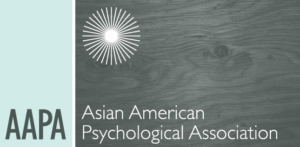The mission of AAPA is to advance the mental health and well-being of Asian American communities. In response to community and world events, AAPA has found it necessary to ally with other communities, as it is impossible to function as an ethical body if we speak solely about issues of health and policy that directly impact Asian Americans or behavioral and mental health professionals. AAPA is committed to the promotion of health and equity for the benefit of all, particularly those most vulnerable. As an organization whose members are comprised of immigrants and descendants of immigrants, we are particularly pained by the events witnessed at the southern U.S. border, which reveals breaches in international standards for children’s rights (https://www.ohchr.org/en/professionalinterest/pages/crc.aspx).
Decades of psychological research on child and caregiver attachment unequivocally demonstrate the crucial role of attachment in child health and well-being. In particular, disrupted caregiver attachment for children under age 5 contributes to lifelong negative developmental consequences. The psychological impact of family separation policies as well as inhumane detention conditions is causing needless and irreparable harm to migrant children. Prolonged exposure to the stressors of such conditions can cause both short and long term health consequences (https://www.srcd.org/policy-media/statements-evidence/separating-families).
AAPA is a non-partisan organization that promotes mental health; this includes the welfare of children. We advocate for a world that supports health and ethical practices. This mission is even more urgent when those enduring harm are children who are unable to care for themselves—children who are separated from their adult caregivers and without the supervision of qualified pediatric and psychological experts. We stand firmly with other professional organizations (such as the American Psychological Association, American Academy of Pediatrics and the National Association of Social Workers) against family separation as a matter of policy within the asylum process. In addition to the negative impact upon individual children and families, current policies threaten overall public health as explained by the American Public Health Association.
As a member organization of the National Council on Asian Pacific Americans, AAPA recommends the rejection of an enforcement-only approach to immigration. Such an approach only results in anti-immigrant initiatives, scapegoating of refugees, harmful family separations, and increased vulnerability of survivors of domestic violence, human trafficking and other crimes.
What can we do to help?
Speak Up.
Write an op-ed in your local paper, or send an email to your member of Congress about your concerns.
You can call your representatives as well- 202-224-3121 and the switchboard will connect you to your local representatives.
Ask to end the zero tolerance inhumane policies punishing families for seeking asylum.
Call upon the Federal Government to ratify the UN Convention on the Rights of the Child.
Demand the appropriate use and maintenance of data to facilitate reunification of separated children and caretakers.
Share behavioral health facts and concerns within your personal and professional circles.
Act locally.
Volunteers are not allowed in detainment centers, but you can find out about your local refugee resettlement agencies and what they need here:
https://www.acf.hhs.gov/programs/orr/state-programs-annual-overview
Support Civil Rights
ACLU’s national site: https://www.aclu.org/action
We call upon AAPA members to share their regional resources and allied programs as well.

